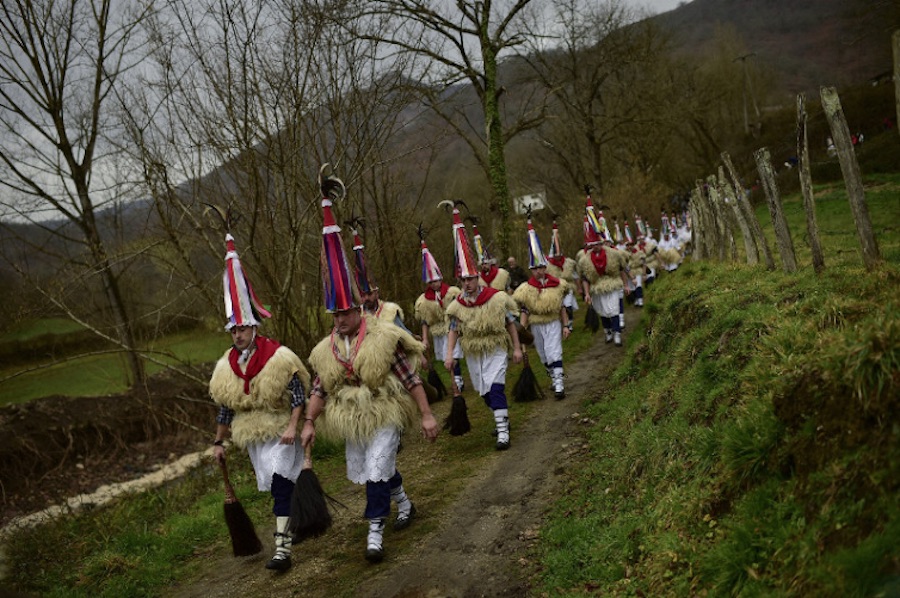In what has become a news tradition, the Carnival in Ituren-Zubieta catches the attention of numerous world media outlets, as we’ve mentioned on many occasions.
This year, the Associated Press also shared a story with a graphic explaining some of the basic details of this extraordinary manifestation of Basque popular culture. We found out about the AP article thanks to a news item based on it about the festival in the English-language version of the Japanese daily Mainichi Shinbun, one of the country’s leading newspapers.
But we were quite surprised to see that throughout the whole article describing a festival that’s been held for ages, the word “Basque” was only used to state that the term joaldunak comes from that language. The word “Spain” appeared 22 times, so that everyone knew that these towns in northern Navarre are part of the Kingdom of Spain.
It seems impossible to us that someone could try to explain such an ancient tradition and festival without citing those people who for ages were its only protagonists, especially when the same article mentions that it’s one of the oldest festivals in Europe.
We’re dumbstruck.
The Mainichi – 3/2/2020 – Japan
Ancient carnival in Spain wards off evil spirits
In one of the most ancient carnival celebrations in Europe, dozens of people don sheepskins, lace petticoats and conical caps, sling cowbells across their backs and parade through two Spanish towns.
(Follow) (Automatic translation)
AP – 2/2/2020 – USA
Ancient carnival in Spain wards off evil spirits
In one of the most ancient carnival celebrations in Europe, dozens of people don sheepskins, lace petticoats and conical caps, sling cowbells across their backs and parade through two Spanish towns.
(Follow)
Header: In this Jan. 27, 2020 photo, ”Joaldunak” march along a path as they take part in Carnival in the small Pyrenees village of Ituren, northern Spain. (AP Photo/Alvaro Barrientos)
Last Updated on Dec 20, 2020 by About Basque Country





